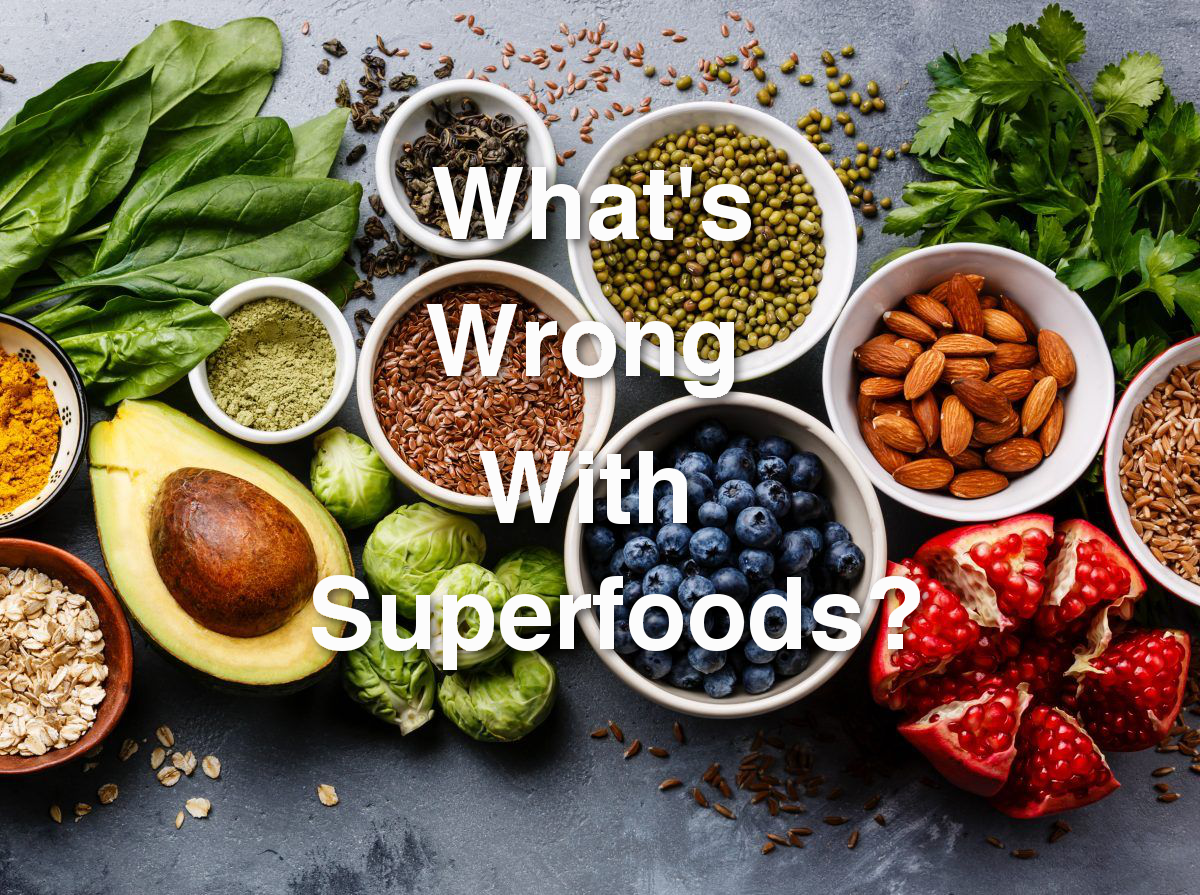Rethinking Supplements - Part 2
Part 1 of this series on rethinking supplements covered things like probiotics, omega-3s, joint supplements, and protein powders.
Today, in part 2, we’ll go over some more supplements in your cabinet that you can consider replacing with the same nutrients from food sources and also consider what bottles you might want to keep on hand.
Step foot into any supplement store and you’ll be told that the brands layering the walls and shelves are superior to the other brands sold by the competitor down the street. Not only will you hear that you often will be spoon-fed a story about how you must take this or that product because it’s the next big thing, or even worse because you don’t get enough of it from your diet alone.
I used to buy into every supplement marketing gimmick under the sun. That’s part of the journey that I think every naive young lifter has to go through to some extent. However, now my perspective has shifted in the opposite direction and I’m starting to explore how it might be possible to push your performance to the limit as a strongman competitor without the use of any supplements at all.
The marketers in charge of running the big companies that contribute to the multi-billion dollar supplement industry will tell you that their product is far superior to getting whatever ingredients from food sources; they’re lying.
Caffeine/Preworkouts
For the supplement industry, pre-workout supplements are like the honour roll student who’s secretly snorting coke off the bathroom seat in high school. Because of the dramatic, immediate effects that you can feel, they are the pride of joy of every supplement company but with their dirty little secrets. Look up a list of names for pre-workout supplements to see just how ridiculous things have gotten with trying to market the most intense and stimulating workouts. There’s actually a product called “Sidewalk Kraka,” but if that’s not crazy enough for you I’m sure there are lifters out there that are actually doing speed before workouts to up the intensity.
To say the least, pre-workout supplements have gotten out of hand. There are still products out there that may give you what you need for energy without going overboard but I want to suggest that you take a step back from all the rainbow rocket flavoured “pink alien piss” as Alan Aragon calls it, and go back to good ol’ coffee when you need an extra boost for your workout.
If you need something convenient to have before a workout, make your own cold brew coffee and you’ll be ready to pour it in a glass or shaker cup and drink it up in the same time it would take to prepare a pre-workout powder.
Coffee works better and gives you a more natural and sustained energy boost compared to pre-workout supplements. From my experience, pre-workout supplements are limited in their application to strongman training days and competition settings because their dosages of ingredients contradict your needs as an athlete. The caffeine bolus from these products is too much along with “pump ingredients” that are included to maximize the pump from a workout. In competition the caffeine spike along with adrenaline dump from the competition almost always causes too much energy to be used up in the first few events followed by a subsequent crash. The pump ingredients can leave the lower back and legs in an uncomfortable situation prior to starting each event as strongman is always low-body intensive.
Because of the different compounds and stimulating ingredients in coffee, its energy curve is not as steep as that of pure caffeine or pre-workout supplements, meaning it works better for providing sustained energy throughout a training session or competition.
Nootropics - Smart 'Shrooms
Nootropic supplements and drugs have for a long time been the secret sauce of high performers in a wide variety of fields, although it only occasionally pops up as a trending thing to get the “limitless effect” and maximize your potential through so-called smart drugs. Mushrooms are incredible for a wide variety of functional effects from the nutrients they contain. One of the most interesting uses of certain mushrooms that may have been used since the dawn of humanity but has only recently reached the limelight is as nootropics. Lion’s Mane, in particular, is a type of mushroom that carries with it an incredible superpower in its ability to stimulate Nerve Growth Factor. One of the key effects of NGF stimulation is the enhancement of memory and learning.
This one is sort of a grey area since a powdered form of Lion’s Mane is a supplement and is one of the few ways to get enough of the functional components that exact this effect. The bulk powder can be added to coffee, tea, or other drinks. There are also mushroom coffees that already contain Lion’s Mane and other mushroom ingredients that mix great and are packaged in single-servings to travel well. It would probably be highly impractical to try to find Lion’s Mane mushrooms to eat, let alone consume enough of it on a daily basis for brain-boosting effects.
Organ Meats
While this may sound “offal” to some of you, organ meats are the next on the list for foods that can replace your supplement cabinet full of pills. Organ meats along with fresh vegetables, replace your need to take any type of multivitamin or multimineral supplements when made a regular part of your diet. Organ meats are rich in mineral as well as vitamins. I’ll be the first to admit that I’m not a big fan of offal and don’t eat it as often as I probably should for the mega-doses of nutrients you get. Buying fresh, and organic, grass-fed, makes a big difference in taste and quality in my experience. Also learning how to prepare it properly is very important. A great place to start for more on the benefits of organ meats and recipes to make them tasty is the book/cookbook Nourishing Traditions.
Fresh Vegetables
Eat more fresh fruits and vegetables. Plain and simple. Almost everyone needs to eat more fruits and vegetables and while fresh is best for flavour as well as seasonality.
Fresh foods, whether it's unprocessed meats or vegetables, are one of the core pillars of diets of our ancestors that promoted our physical and mental development, as well as one of the main factors in the health of populations studied on Earth to have the greatest longevity.
Including more veggies, whether fresh or frozen, is still going to be important for health. Respecting this supplement swap seems to be easier said than done for a lot of people, but in following it you’ll be saving yourself the need to spend money on multivitamins or greens powders that are almost always less beneficial than straight from the source with fresh produce.
So what supplements should you keep in the mix?
Greens+
It’s nice to have a safety blanket around when it comes to greens and getting in more fruits and vegetables. Well-produced and high-quality greens supplements are not cheap. Greens+ from Genuine Health, for example, is a top quality product but you also have to pay for what you’re getting. On days where you maybe didn’t have as much time to prepare your own meals, or you were travelling, a greens supplement can come in handy for getting your daily dose of a wide range of phytonutrients. I also prefer to recommend a greens powder over multivitamins because few multis are prepared with natural sources and more often are synthetic forms of vitamins and less bioavailable mineral sources. Greens powders also contain additional antioxidants and other compounds for benefits you won’t typically find in multivitamins.
Turmeric/curcumin
From antioxidant to anticancer effects, turmeric/curcumin is a useful spice and food ingredient that is better obtained through supplemental form if you’re trying to include more of it in your diet for any specific reason, such as its powerful anti-inflammatory effects. Turmeric has very low bioavailability in food form and the active compound curcumin makes up a low percentage of the root or powdered spice. High-quality turmeric supplements will be concentrated in curcuminoids and often contain other ingredients to increase the bioavailability of the supplement to make it more absorbable and effective in the body.
If you’re including more turmeric for specific effects, consider supplementing with it. If you’re just including more turmeric in your diet for health, you don’t need to necessarily supplement with it as well.
Creatine
Creatine monohydrate is as tried and true as supplements come, not just as a supplement that offers a slight performance enhancement effect in boosting muscular endurance and strength, but also for protective effects on cognitive and cardiovascular health. While creatine can come from beef, you would have to eat far more than a realistic amount of beef daily to supply the 5 g recommended dose of creatine, so instead, it is far better for you to simply take a teaspoon of this supplement daily and maximize the health benefits from it. While traditionally seen as a bodybuilding supplement, more research is showing that this is the type of preventative health supplement that everyone should be considering.
Vitamin D - Sunlight
Finally, let's look at one more supplement that you might want to consider getting more of and if you don't get it from a tiny capsule or dropper then you'll have to fly like Icarus too close to the sun to source this nutrient. Vitamin D is important for a million and one reasons. It plays a role in most of the processes in our bodies from bone health, to immunity, to gene expression, meaning it keeps each and every one of our cells happy and healthy. If you’re working on eating more meat on the bone, like we discussed in part 1 of this series, that’s one way to increase your dietary intake of Vitamin D. Many foods are now also fortified with Vitamin D but usually not to an extent that most of us would consume enough Vitamin D from dairy products and other fortified foods alone. Direct sunlight is our best way to maximize our own production of Vitamin D without having to supplement for it, although for many people, at least half the year presents us with very little opportunity to get enough direct sunlight to produce the adequate amount of Vitamin D recommended for good health.
The best way to know how much Vitamin D you need to supplement with is through getting a few blood tests done on Vitamin D levels and adjusting accordingly to hit your mark. The blanket recommendation for supplementing with Vit. D from most well-researched dietitians and nutrition scientists is 2,000 IUs per day. More research into nutrigenomics has now shown us that even this recommendation is below what many individuals may need if they are genetically prone to lower Vitamin D levels or not as efficient at producing Vitamin D from sunlight. Now, some people are taking as much as 5,000-10,000 IUs per day depending on the season to keep their blood Vitamin D levels in the optimal range. Because Vitamin D is a fat-soluble vitamin and will stick around in your body if consumed in excess, it’s best to consult with a doctor or dietitian to ensure your blood levels are optimal but not excessive if you’re regularly supplementing with more than the recommended intake.
So Do You Really Need All Those Supplements?
Most likely the answer is no. If your supplement cabinet looks like you're harbouring an entire dispensary of drugs, you might want to consider how you can replace some of those concoctions with verifiable victuals.
If you have any questions, feel free to shoot me an email and let me know where you're stuck with your nutrition.










